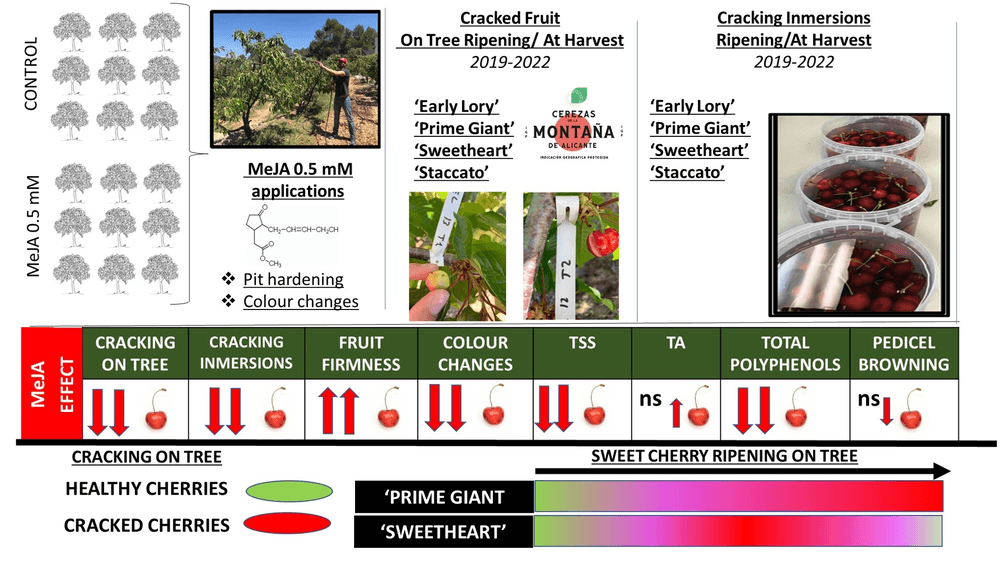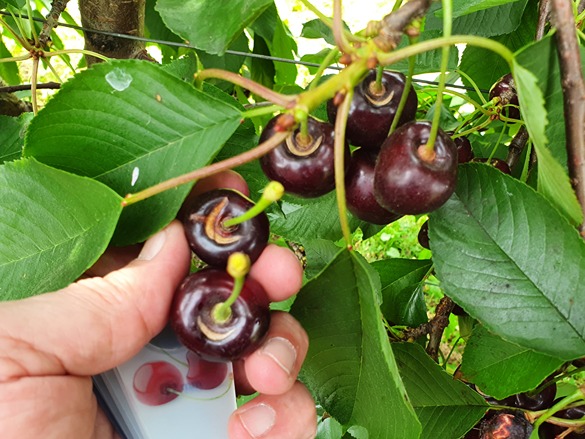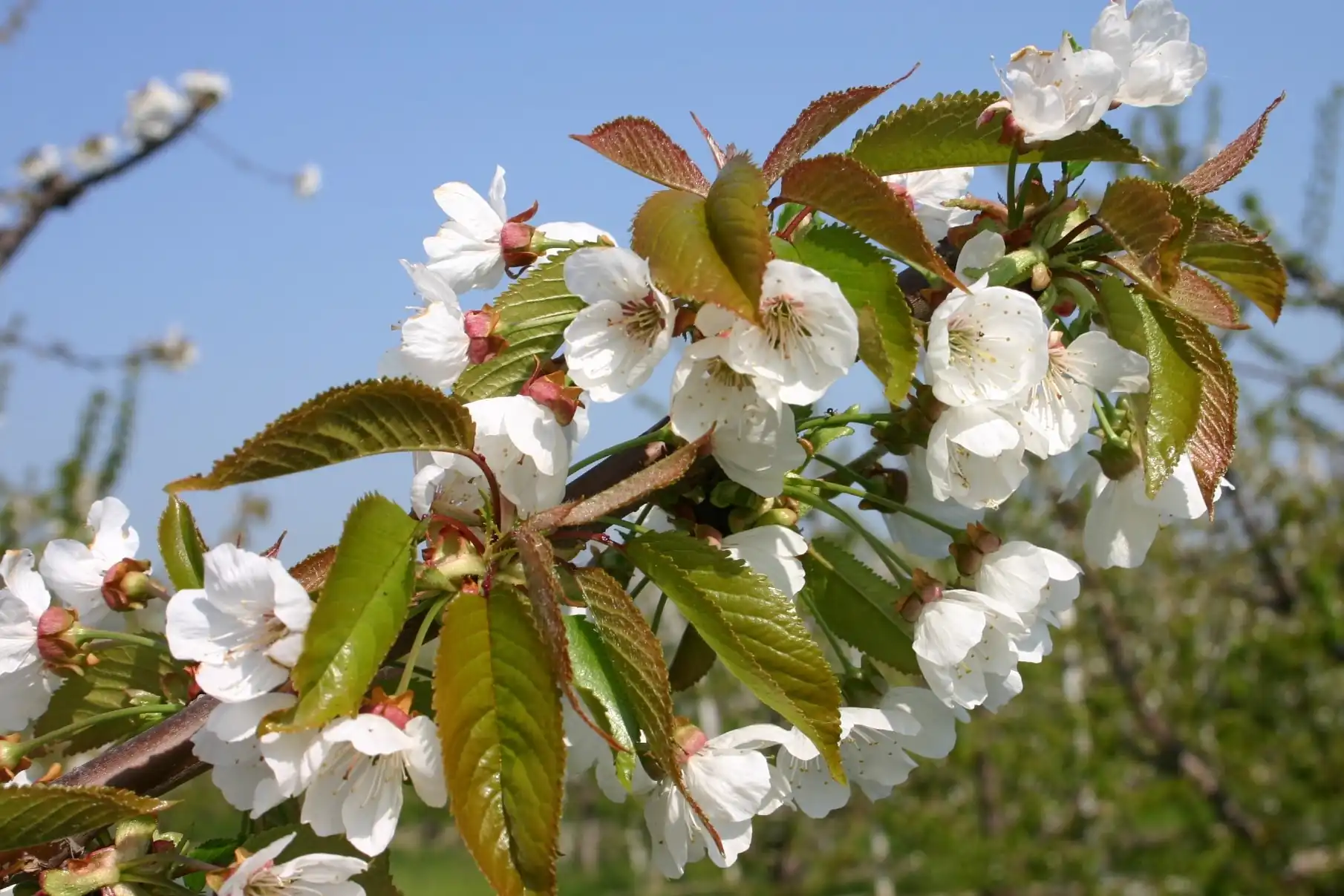Each fruit species has different variables that contribute to cracking. Cherry fruits, which have a thinner epicarp, show greater susceptibility to cracking than other stone fruits characterized by fruits with thicker epicarp. In addition, cracking of cherries is influenced by other variables such as fruit size and shape, genetic variables and sugar content.
It is also known that the ripening stage has significant importance on the occurrence of cracking. It has been observed that cultivars with higher cracking tolerance have a more extensive cell division stage, leading to an increase in mesocarp size. However, the increasing frequency of extreme weather events related to climate change may exert a substantial influence on the occurrence of cracking on cherries.
Indeed, several environmental parameters are affected, including, but not limited to, increased rainfall, high humidity levels, and abrupt temperature fluctuations. In addition, the occurrence of precipitation during the cherry development stages has the potential to cause substantial pre-harvest losses, mostly attributed to cracking.
Some cultivars are more vulnerable to this problem, especially when there is a convergence of persistent rainfall with advanced phenological stages. In this context, methyl jasmonate (MeJA), functioning as an intrinsic signaling molecule, assumes a crucial function in the growth, development and physiological processes of plants, enabling them to successfully adapt to adverse environmental circumstances.
The primary objective of the study conducted by the researchers of the Postharvest Research Group of Fruit and Vegetables (Orihuela, Spain) was to examine the effectiveness of preharvest methyl jasmonate (MeJA) treatments in reducing sweet cherry cracking during tree ripening and at harvest.

Preharvest foliar treatments of 0.5 mM methyl jasmonate (MeJA) were applied to 'Prime Giant', 'Early Lory', 'Sweetheart', and 'Staccato' over four growing seasons. The results revealed that preharvest treatments with MeJA have a significant impact on reducing fruit cracking and improving tolerance to abiotic stress, both during the ripening stage and at harvest.
Furthermore, it has been observed that these treatments result in a widespread postponement of fruit ripening on the tree among the varieties under investigation. The observed phenomenon of delayed ripening is evident in various quality indicators such as fruit firmness, external color, total soluble solids content, and total acidity. The treatment with MeJA induced a delay in ripening in comparison to the control fruit.
However, the application of MeJA resulted in a postponement of total polyphenol accumulation, with only a marginal effect observed in terms of mitigating pedicel browning. The MeJA preharvest treatments have been found to contribute to an increased tolerance to cracking and delayed ripening, which could potentially be advantageous for plot management.
Therefore, these preharvest treatments utilising MeJA have the potential to serve as effective strategies for adapting to climate change and alleviating abiotic stress in sweet cherry cultivation.
Due to this rationale, it is plausible that MeJA, when administered as a preharvest intervention, may serve as an effective mechanism for mitigating abiotic stress and retarding the ripening process in fruits while they are still on the tree. Consequently, this intervention has the potential to improve field management and some quality parameters of harvested fruits.
Source: Ruiz-Aracil MC, Valverde JM, Lorente-Mento JM, Carrión-Antolí A, Castillo S, Martínez-Romero D, Guillén F. Sweet Cherry (Prunus avium L.) Cracking during Development on the Tree and at Harvest: The Impact of Methyl Jasmonate on Four Different Growing Seasons. Agriculture. 2023; 13(6):1244. https://doi.org/10.3390/agriculture13061244.
Melissa Venturi
University of Bologna (IT)
Cherry Times - All rights reserved












